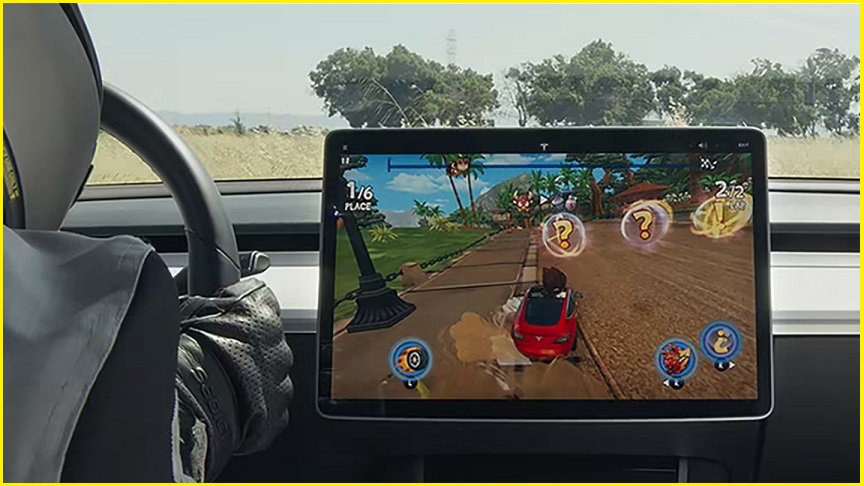Car giant Tesla may have pushed its video-game ambitions too far, after US authorities announced an investigation into a recent software update that lets passengers play video games on the cars’ large front screens while the vehicle is moving.
The US National Highway Traffic Safety Administration (NHTSA) announced that it will “evaluate aspects” of Tesla’s Passenger Play feature in response to a complaint from a “dumbfounded” Tesla owner who was able to play the Sky Force Reloaded game while driving around an empty parking lot.
The agency’s Office of Defects Investigation (ODI) will, it announced in a formal notice, investigate Passenger Play in an action that could lead to enforceable directions related to the estimated 580,000 Tesla vehicles sold since 2017.
Passenger Play “may distract the driver and increase the risk of a crash,” the NHTSA said, noting that ODI “will evaluate aspects of the feature, including the frequency and use scenarios” of the technology.
The electric-vehicle company launched its Tesla Arcade service in 2019, letting drivers play a range of games in stationary cars including Atari retro titles and a driving game playable using the actual car’s steering wheel and pedals.
The recent software update – which enables gameplay in a moving vehicle after displaying an onscreen safety warning – has raised eyebrows from regulators and concerned drivers who see it as a potential disaster in the making.
Regulators have already been struggling to remind drivers against becoming over-reliant on Tesla’s Autopilot feature, which enables hands-free driving in some circumstances but expects drivers to be ready to take control of the vehicle if necessary.
The addition of video games to the mix is “a big concern if it plays in view of the driver,” Governors Highway Safety Association executive director Jonathan Adkins told the New York Times.
Adding video games to vehicles “is crying out for NHTSA to provide some guidance and regulation,” he said.
Distracted driving is credited with causing around 10 per cent of traffic deaths and 3,142 Americans died in distraction-related crashes in 2019 alone, according to the NHTSA, which also reported a spike in traffic fatalities after more than 20,000 Americans died on the country’s roads in the first half of this year.
In Australia, drivers are forbidden from having any video content on their field of vision – including movies, live TV or even FaceTime or other video calls – and penalties are strict.
Passengers in states like NSW can use digital screens as long as they are not visible to the driver and don’t distract another driver.
A mobile home theatre?
Like the ability to stream Netflix and other video services, the addition of games was a novelty for many at first, with a limited range of viable use cases.
Drivers report playing the games while waiting for their cars to recharge, for example, or while waiting in stationary vehicles to pick somebody up.
Yet the company has a broader vision for the technology, which is being positioned as part of a suite of features intended to turn the Tesla cockpit into a mobile home theatre of sorts.
Tesla founder Elon Musk has indicated that the games are intended as a key capability when full self-driving autopilot is approved by regulators – although that time may be further off than even he expected, having recently admitted that achieving full self-driving capabilities is harder than he expected.
At least 12 deaths have been connected to drivers who stop paying attention while using its Autopilot mode – also investigated for its frequent collisions with emergency vehicles – and eager drivers have been testing the limits of the vehicle’s technology in potentially disastrous experiments.
Consumer Reports, for one, recently outlined its success in tricking the Tesla Autopilot system into driving with nobody in the driver’s seat – a stunt that saw one British driver banned from driving after he was caught doing the same thing.










